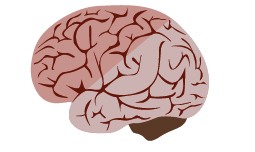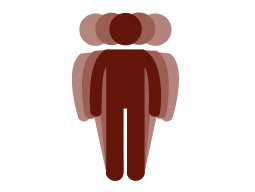Sometimes mental disorders can be misconstrued as just eccentricities or general weirdness. As a result, people who have these disorders aren’t always given the right kind of attention or treated properly. To avoid misunderstanding, here are the basic characteristics of five often misunderstood mental disorders.
Bipolar Disorder
Those who suffer from bipolar disorder experience episodes of mania alternating with experiences of depression. Mania sometimes takes the form of euphoria, high energy or productivity, other times impulsiveness or irritability. The social stigma attached to bipolar disorder is evident in how it is often confused with schizophrenia or multiple personality disorder. Bipolar disorder can be treated with therapy and even self-help, though some cases call for medication or even hospitalization.
Social Anxiety Disorder
The most common anxiety disorder, Social Anxiety Disorder(SAD) is characterized by an extreme fear of social situations. Those who suffer from SAD may see certain experiences of social interaction as excessive, intrusive or scrutinizing, and fear that they are constantly being judged by others. Because of this, most people who suffer from SAD usually avoid social situations altogether. This is not to be confused with introversion, which is typically characterized by a reserved disposition or a preference for a solitary lifestyle.
Obsessive-Compulsive Disorder
More commonly known as OCD, this disorder is characterized by repeated behaviors or compulsions acted out to reduce uneasiness or nervousness. These feelings are caused by unwanted, involuntary thoughts. Symptoms of OCD include, but are not limited to, excessive washing or cleaning, unreasonable preoccupation with small details like certain colors and numbers, excessive nail biting and skin picking and other nervous rituals. Most people of suffer from OCD recognize their obsessions and compulsions as irrational but find themselves unable to overcome their behaviour, causing more distress.
Schizophrenia
Not to be confused with multiple personality disorder, schizophrenia is characterized by a tenuous grasp of reality. A schizophrenic typically experiences delusions, hallucination in any or all five senses, incoherent speech, fear of an unknown presence, disorganized thinking and a lack of emotion or motivation. Those who suffer from schizophrenia may also experience episodes of depression or anxiety. The suicide rate among schizophrenics is above the average by five percent. Schizophrenia is usually treated with antipsychotic medications, or in extreme cases, hospitalization.
Tourette Syndrome
Named after its discoverer, French physician Georges Gilles de la Tourette, this disorder is characterized by motor and vocal tics. These are involuntary actions which can be suppressed but ultimately cannot be controlled. Tourette syndrome typically manifests as early as childhood. There a social stigma attached to the syndrome, in that those who have Tourette’s are branded eccentric. Many people fail to recognize that the motor and vocal tics come from a disorder that can be managed by therapy or medication.
Illustrations by Meg C. Quintos












